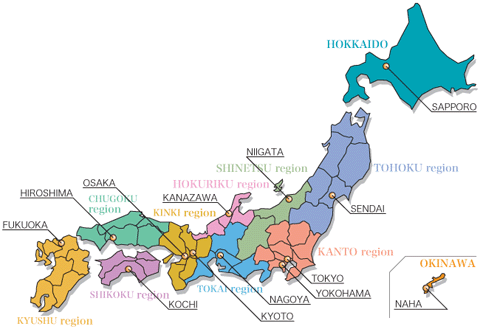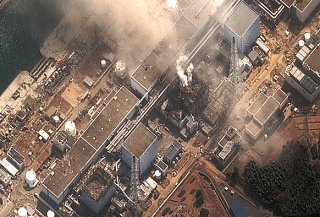business EFL eikaiwa ES expectations kids language courses Language learning school management teaching teaching culture
by sendaiben
2 comments
The purpose of a language school
This year has given me a lot to think about with regards to Cambridge English, the language school I help run. We have been forced to make a lot of changes, closing one location, rearranging the schedule to deal with staff shortages, developing the curriculum to move towards where we want the school to be.
I have also had the chance to do a lot of teaching during the last six months, averaging around 60 contact hours a week and coming very close to burning out.
Brainstorming with other staff has given me some broad principles to follow in the future, and interestingly shows where we went wrong in the past. Some of our previous goals were in fact counter-productive and were holding us back. It has also thrown out some dilemmas that I have not completely resolved yet.
Big or small?
This is probably the first question school owners need to answer. Do you want to be a big school with multiple locations and a large staff, or a small school? We used to want to be big, but it is a horrendous amount of work to grow beyond a couple of teachers, and I am not sure that it is possible to do so without taking a considerable hit in terms of character and quality. Multiple locations means doubling up on resources, something that is almost prohibitively expensive for us (we have thousands of readers and a lot of games and toys). Moving things to where they need to be and keeping track of things is a huge headache that doesn’t exist when you are based in one place.
So, I give up. I am never going to be the CEO of a big company. My talents and temperament don’t seem to be a good fit with that. Instead, I will see how far we can take things on a more manageable scale.
Cheap or expensive?
This is another vital question, one that has become a bit of a no-brainer for us. I believe there is no future for small schools attempting to compete on price. I even feel that charging average fees is a losing proposition for us. Instead, we are going to attempt to become a boutique school, a luxury good in economic terms. As long as your market is large enough (we are in Sendai, a medium-sized city), there should be plenty of potential customers for whom quality is more important than price.
Of course, if you want to charge more, you also have to deliver results. Your classes must be purposeful and show students or their parents how they are helping them. Your school should be attractive, clean, and well-presented. You should have an effective curriculum and decent staff. Effective communication with students and/or parents is also essential.
Provided you actually deliver these things, charging more than other schools around you can be an effective marketing technique. For certain potential customers, higher prices are likely to catch their attention. Why is that school more expensive? In a lot of cases, higher prices will give an image of higher quality.
We have found that each time we raise our prices, demand also rises. Take private lessons for adults: we started at the ridiculously low price point of 8,000 a month for four classes, then raised it to 12,000, then doubled it to 24,000. Each time we raised the price, we got a wave of new enquiries.
Inclusive or exclusive?
This is something I have real trouble with. Our school has always tried to accommodate all students, regardless of their ability or temperament. We have several students with mental or emotional disabilities, and most of them have private classes at group rates because that is the most effective way to meet their needs and the needs of other students.
However, in line with the drive for quality above, I am tempted to screen students entering our school. Often when students come for trial lessons, it is very easy to tell if they are actually interested in English or not. It is also fairly easy to predict how involved their parents are likely to be, or how interested they are in the school.
Motivated students with supportive parents are easy to teach and learn quickly. This leads to a virtuous circle of achievement, where the students learn more, get more satisfaction, and are driven to learn even more.
If you eliminate the disinterested, the disruptive, the disturbed, and the less able, classes will go more smoothly and both students and teachers will enjoy them more. Students are more likely to succeed in this case, and success leads to very effective word of mouth marketing. If you also get a reputation for being selective, then that can increase interest in your school, as people always want things they can’t have.
However, is this fair? As a teacher, I feel a duty to society. If we only take students that can afford to pay elevated fees, we are depriving poorer, possibly equally motivated and able students, of the chance to study with us. If we turn away students with behavioural, emotional, or educational problems, we are discriminating against them as well. Don’t all students have the right to have access to what we can offer them?
Of course, we are a business, not a public school. We can set any policy we like, take or turn away any customer, and set fees at any level.
One way to square this circle is to provide options to accommodate different students. We currently have half a dozen students who are studying for free, because their family circumstances due to divorce, unemployment, or the after effects of the earthquake means that they would not have been able to remain with us as paying students. We also have students who receive private lessons for the price of group ones because they are autistic and do not work well with others: we didn’t feel it was fair to charge them more because of their disability. Perhaps we can extend this model into the future, providing academic scholarships for promising students who wouldn’t otherwise be able to afford the fees and continuing to cater to non-standard students.
So, what is the purpose of a private language school?
Is it solely a profit-making enterprise or is there some obligation to serve the community? How do you address these three issues? I would be very interested to hear from other owners and teachers in the comments below.
business curriculum EFL eikaiwa expectations kids language courses Language learning school management teaching
by sendaiben
3 comments
Choice in the classroom
(I’d like to take a short break from earthquake introspection today)
Choice in the classroom
I had a great teaching experience today. It’s so simple that it’s probably not worth writing about, except that it made a big impression on me so there is a slight chance it will also prove useful to others. I was teaching one of our ‘advanced’ classes, made up of promising students that we select and recruit from our general student population (advanced classes are invitation only). This particular class has four girls in it, three junior high school second years and one third year. They’re a great bunch.
We just finished a textbook (Listening Starter 2, published by Compass), and had to decide what to use next. I had something I want to use, but without really having planned to, I pulled out three possible options and introduced each one, then asked the students what they thought. We ended up having a short, to the point, focused discussion about which textbook they wanted to do next, and why.
It wasn’t the one I had chosen.
This is fairly basic stuff. Give the students choice, make them responsible for their learning, give them more autonomy, etc. The thing is, I clearly wasn’t doing it as much as I could have. My students today showed me that they are mature and responsible enough to make these kinds of choices for themselves, and by allowing them to make that choice I maybe managed to convey to them how much I respect and like them. I think I ended up learning the bigger lesson.
It was a great end to a very long day of teaching.
earthquake life in Japan living in Japan personal refugee
by sendaiben
5 comments
The Great East Japan Disaster Part Three: Refugee 1.0
The third installment. See Part One and Part Two if you are confused.
The Great East Japan Disaster Part Three: Refugee 1.0
The actual drive from Sendai to Kanazawa was nightmarish, not because it was particularly bad, but rather because it seemed vividly unreal.
We left the house about 2:30am, and headed south on Route 4 as the expressways were all closed due to the earthquake. We had half a tank of fuel, something that will become significant shortly. The power was off everywhere, so we had to slow down at each intersection to check for cars. No lights in houses, no street lights, no traffic lights. It was strangely peaceful and slightly eerie, with no other cars to be seen. The roads in the southern part of Sendai were not damaged, unlike the east of the city where our classroom is, where they buckled and cracked dramatically.
After an hour or so I couldn’t keep my eyes open, so I got my wife to take over driving duties and napped in the passenger seat. We were just north of Fukushima city at that point.
Of course, we had originally planned to go west then down the Sea of Japan coast. Unfortunately the fact that we only had half a tank of petrol made it seem more sensible to use the main roads to the south, even if that did take us closer to the reactor than we were comfortable with. Remember, at this point all we knew is that the plant was at risk, so we were very nervous about worst case scenarios (in hindsight, with some justification!).
After a couple of hours of sleep, I woke up and resumed driving. We passed through town after town, all silent and dark, and it wasn’t until we reached the southern end of Fukushima that the electricity came back on. Even then, shops and more importantly, petrol stations were closed and boarded up.
Further and further south we drove, with the fuel gauge dropping lower and lower. It was just outside Utsunomiya that I started getting seriously worried. The needle hit the bottom of the red section, and I figured we probably had about ten kilometres left before we had to ditch the car.
Suddenly we passed a petrol station with a small line of about five cars. It didn’t register for a few seconds, but then I pulled a very sharp u-turn and five minutes later we were in front of a pump. They were out of ordinary petrol, but still had four-star (premium, high-octane). I gratefully filled the tank, and we were on our way.
As we drove on, I realised how lucky we had been to drive past a petrol station that had just opened. Every other one we say for the next hour or two had a line of twenty to thirty cars waiting, or was closed.
The rest of the day was fairly ordinary. We had lunch at a Sukiya (a chain restaurant), stopped at a couple of convenience stores, drove through the most amazing scenery I have seen in Japan (Nagano and Toyama), and finally got to Kanazawa around 6pm, roughly fifteen hours after we set off.
That night we went to a sento (public bathhouse) and out to dinner. It was wonderful.
The Great East Japan Disaster Part Two: Nuclear Accident
Continuing my account of the March 2011 disaster. See Part One for the beginning of the tale.
Part Two: Nuclear Accident
Around 6pm on Saturday evening (the day after the earthquake), just after we had eaten and just as we were thinking about going to bed (with no power and no heat, you quickly revert to a more natural sleep cycle!), our phone rang. Now, given that we had no power and the phones were supposed to be out, this was fairly surprising.
We actually got phone calls from two people that evening: my uncle in the UK, and my godfather in Germany. Both were calling because of initial reports of the nuclear power plant accident in Fukushima.
There wasn’t much information at that point, just reports that the cooling systems were broken and the reactors might be breached. I talked to both of them briefly, then hung up and went to talk to my family. Before convincing them though, I had to convince myself. Remember, I had spent seven hours driving a 30km round trip the day before. I knew how the roads would end up if everyone in Sendai decided to evacuate. We wouldn’t get ten miles…
That’s what decided it for me. Go now, or risk never being able to go. We had to leave immediately.
The other factor was to run through the possible outcomes of the decision. I first remember seeing this in a video about climate change, of all things. You can check it out here.
I did the same thing with our possible escape. Run away/stay put. Nuclear accident is harmless/catastrophic. Made a funky box decision matrix thing, and compared the worst case scenarios: we ran away and the nuclear accident was harmless. We feel a bit silly, it costs us some money. We didn’t run away, and the nuclear accident was catastrophic. Hollywood disaster movie ensues, with us as extras (ie not the people that get picked up in the presidential helicopter just in time).
Once I got that clear in my head, I quickly persuaded my wife and kids. We decided to leave immediately, except that my wife didn’t want to leave her parents behind, so we sent one of the girls to get them. Another of them had gone to take some food to her colleagues just before we got the phone calls, so we had to wait for her too.
It was a tense wait, sitting around the kerosene stove. We put the candles out to save them and grabbed a change of clothes and some personal items. I couldn’t find my youngest daughter’s passport, and the eldest’s one had expired. Figured we could sort something out later.
Coincidentally, my wife’s cousin who lives in Kanazawa on the other side of Japan called her just after the earthquake and before the phones went down, offering her a place for us to stay. We decided to head that way as I had a vague notion to head for Osaka and ultimately abroad to Thailand or the UK if things went really bad, and Kanazawa is on the way to Osaka (and more than 600km from the nuclear reactor across a major mountain range). It seemed to be a good choice.
A good two hours later, my parents in law showed up. Apparently it wasn’t traffic, but rather the fact that it took that long to persuade them to come with us that had caused the delay. They didn’t really see the problem, didn’t want to go (especially in the middle of the night), and were not convinced there was a problem. After all, the government was saying it was okay…
After pacifying them, we sent them off first with two of the girls at about 22:30, telling them to drive across to the Sea of Japan, then down the coast to Kanazawa. The one huge problem was fuel, as shortages, damaged petrol stations, power cuts, and panic buying had rendered it almost impossible to find in Sendai. I figured we’d find some once we got out of the earthquake zone.
So we waited for our eldest to come back. And waited. And waited some more. At around 0:30 my wife went to bed while I stayed up. It was 2am when our daughter came back, so I quickly told her what was going on, gave her ten minutes to pack, and got my wife up.
Jumping into the car, we looked at the half-full petrol tank and thought about distances and routes.
Before we left, we set out as much water and food for our cats as we could, then said goodbye to them.
Rebirth?
I apologise for the dearth of content recently. I will be posting about the earthquake, life as a refugee, and even educational topics over the next few days.
It’s good to be back.



